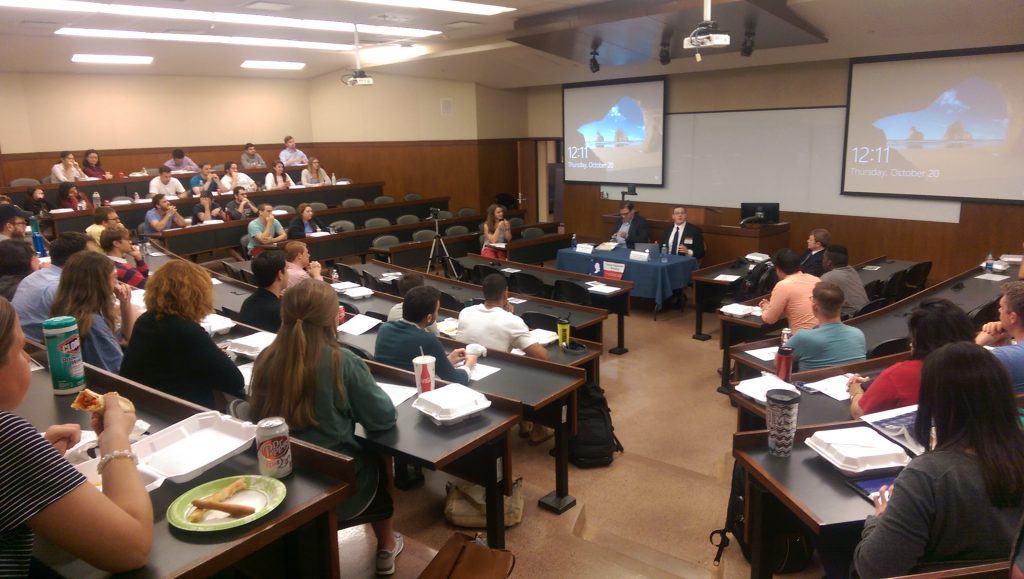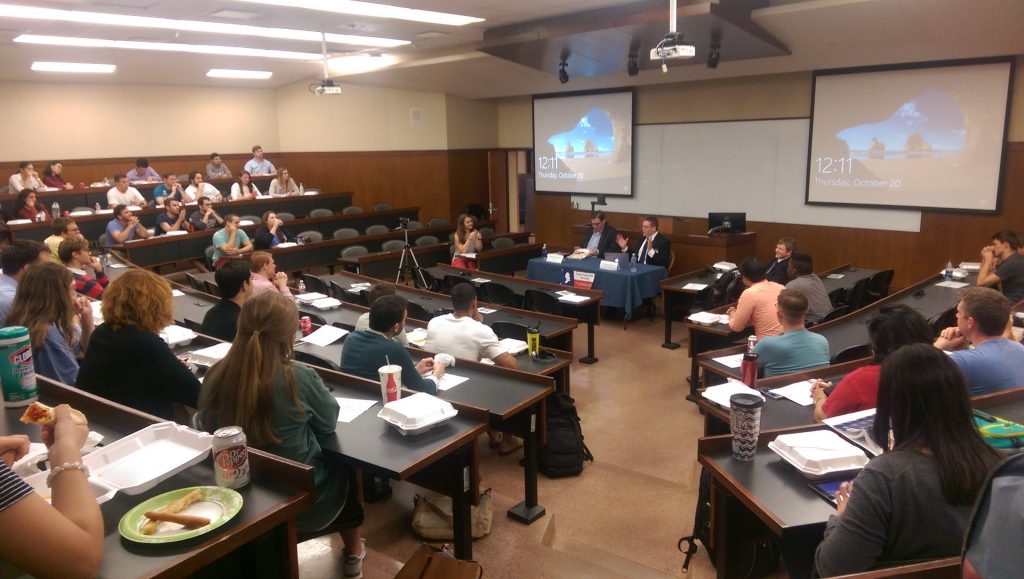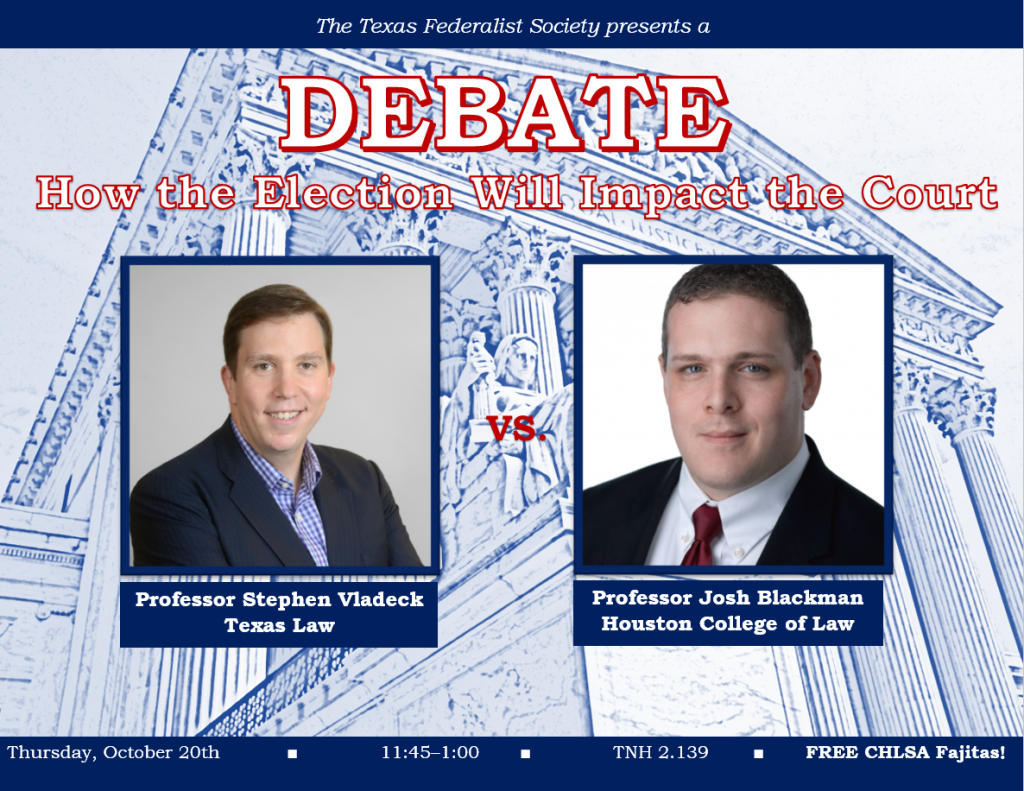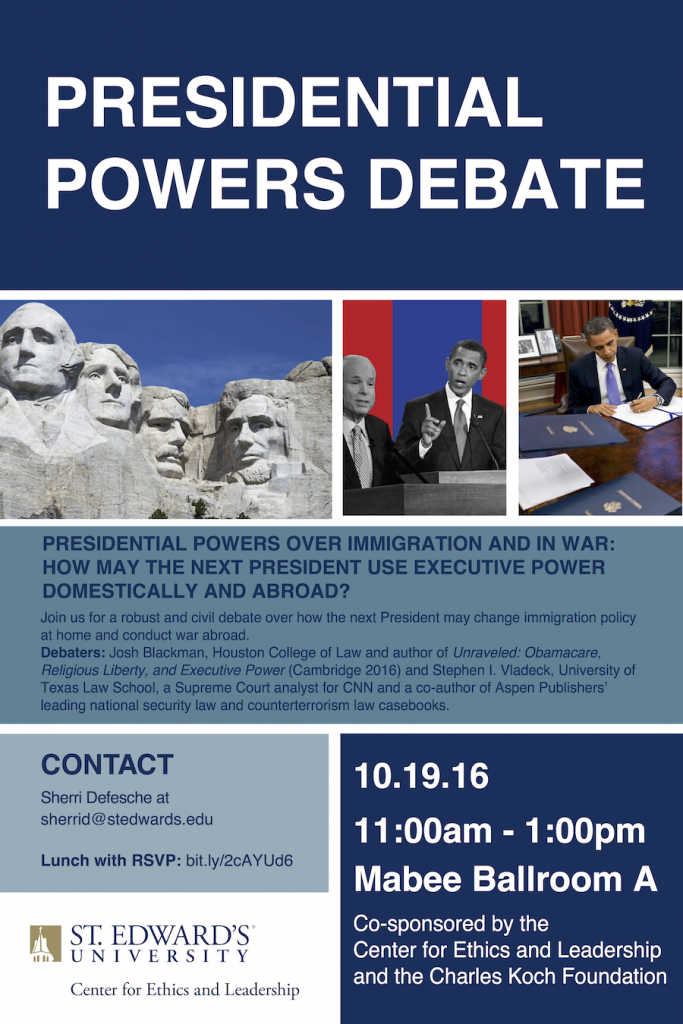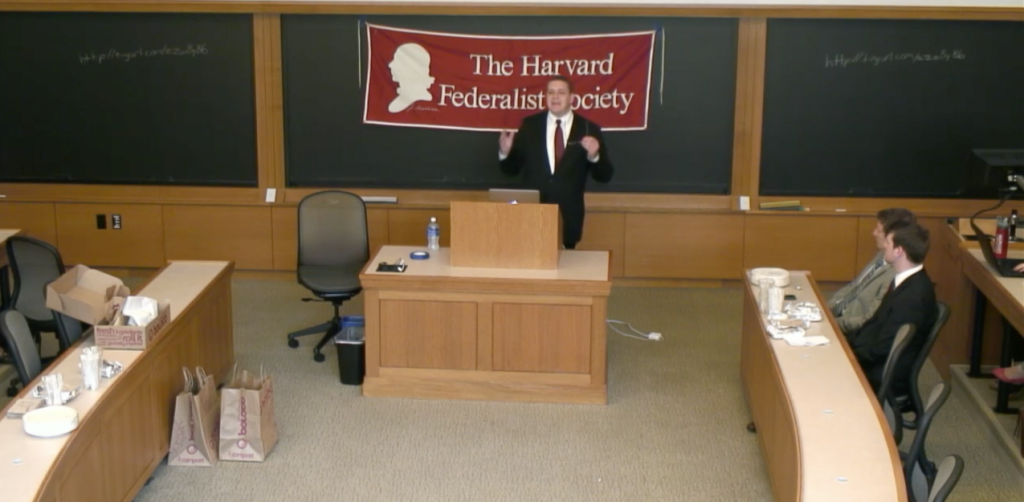Today the executive branch filed its brief in House of Representatives v. Burwell. Here is the introduction:
For the first time in our Nation’s history, the district court allowed one House of Congress to invoke the jurisdiction of an Article III court to resolve a disagreement between the political branches over the Executive Branch’s execution of a federal statute. Such disagreements are routine, but they have always been resolved through the give-and-take of the political process—not by resort to the Judiciary. That unbroken history reflects the fundamental separation-of-powers principles embodied in Article III’s case-or-controversy requirement and the “restricted role for Article III courts” in our constitutional structure. Raines v. Byrd, 521 U.S. 811, 828 (1997). It also reflects the distinct powers of the Legislative and Executive Branches under the Constitution. As this Court and the Supreme Court have made clear, the House’s belief that the Executive Branch is misinterpreting a federal statute does not confer Article III standing or create a case or controversy fit for judicial resolution. The district court’s contrary conclusion cannot be reconciled with the structure of the Constitution, controlling precedent, and historical practice, and would “improperly and unnecessarily plunge[ ]” the Judiciary into a host of disputes between the political branches. Id. at 827.
This suit concerns the Executive Branch’s administration of the insurance subsidy program established by the Patient Protection and Affordable Care Act, Pub. L. No. 111-148, 124 Stat. 119 (2010) (ACA or Affordable Care Act). The Act requires the Department of the Treasury to make payments to health insurers to subsidize health coverage for eligible low- and moderate-income Americans. These mandated payments have two components: premium tax credits, which subsidize insurance premiums for eligible individuals, and cost-sharing reductions, which subsidize copayments and other types of out-of-pocket costs for certain individuals determined eligible to receive the tax credits. Since January 2014, Treasury has been paying both components of the subsidy program from the permanent appropriation in 31 U.S.C. § 1324, which the ACA amended. Congress has taken no legislative action to restrict these ongoing payments—to the contrary, it has enacted legislation predicated on the understanding that the payments would be made. Nonetheless, the House brought this suit asserting that the Section 1324 appropriation covers only the premium tax- credit component of the subsidy program, and that no appropriation is available to pay for the cost-sharing reduction component. After holding that the House had Article III standing and a cause of action, the district court adopted the House’s view on the merits. The court enjoined the Executive Branch from making further cost- sharing reduction payments but issued a sua sponte stay pending appeal.
That injunction epitomizes the “separation-of-powers problems inherent in legislative standing,” Campbell v. Clinton, 203 F.3d 19, 21 (D.C. Cir. 2000), by interfering with the proper functioning of all three branches of government. First, it “meddl[es] in the internal affairs of the legislative branch” by allowing one House of Congress to use litigation to circumvent the legislative process. Id. (citation omitted).
If the House wants to achieve the result it obtained in district court, the course prescribed by the Constitution would be to enact new legislation providing that the Section 1324 appropriation may not be used to make cost-sharing reduction payments. That would require the House to obtain the agreement of the Senate and to accept responsibility for the results. By filing this suit, the House seeks to achieve the same result without obtaining the concurrence of the Senate or accepting the political accountability attendant to legislation.
Second, this suit arrogates to the House a role that the Constitution assigns to the Executive Branch. “[I]t is to the President, and not to the Congress, that the Constitution entrusts the responsibility to ‘take Care that the Laws be faithfully executed.’” Buckley v. Valeo, 424 U.S. 1, 138 (1976). The power “to seek judicial relief” to enforce federal law lies at the heart of that executive authority and “cannot possibly be regarded as merely in aid of the legislative function of Congress.” Id. To the contrary, “once Congress makes its choice in enacting legislation, its participation ends. Congress can thereafter control the execution of its enactment only indirectly— by passing new legislation.” Bowsher v. Synar, 478 U.S. 714, 733-34 (1986).
Third, this suit unmoors the Judiciary from “the traditional understanding of a case or controversy,” a doctrine developed “to ensure that federal courts do not exceed their authority as it has been traditionally understood.” Spokeo, Inc. v. Robins, 136 S. Ct. 1540, 1547 (2016) (citing Raines, 521 U.S. at 820). The district court deemed irrelevant “the history of non-litigiousness between the political branches, recounted in Raines,” JA56, declaring that “there will never be a history of litigation until the first lawsuit is filed.” Id. The Supreme Court, by contrast, admonished that this history shows that “[o]ur regime contemplates a more restricted role for Article III courts.” Raines, 521 U.S. at 828.
Those fundamental separation-of-powers principles, and the House’s lack of a statutory cause of action or any basis for equitable relief, should have prevented the district court from reaching the merits of the House’s claim at all. But the court further compounded its errors by adopting a misguided interpretation of the ACA’s amendment of 31 U.S.C. § 1324 that would thwart the structure and design of the ACA’s carefully calibrated system of subsidies, severely disrupt the insurance markets, and—perversely—lead to substantially greater federal expenditures from the Section 1324 appropriation. If the government stopped making cost-sharing reduction payments, insurers would still be required by statute to reduce the cost-sharing charges they impose on eligible individuals. Instead of recouping those costs as required by the statute, the insurers would make up the difference by raising their premiums. And because of the structure of the Act’s subsidy program, Treasury would then be required to pay considerably more from the Section 1324 appropriation, because the increased silver plan premiums would trigger a commensurate increase in the premium tax credits available to all individuals who receive them—a much larger population than the individuals eligible for cost-sharing reduction subsidies.
The district court did not dispute the perverse and self-defeating consequences of its holding. But the court incorrectly declared that these results are compelled by the unambiguous statutory text of Section 1324. Section 1324 provides a permanent appropriation of “[n]ecessary amounts . . . for refunding internal revenue collections as provided by law,” including “refunds due … from” a list of provisions that the ACA amended to include 26 U.S.C. § 36B. Section 36B sets forth conditions necessary to qualify for cost-sharing reductions as well as premium tax credits. The text, structure, design, and legislative history of the ACA demonstrate that both components of the subsidy program—tax credits and cost-sharing reductions—are “refunds due … from” Section 36B because they are inter-related compensatory payments made available through the application of Section 36B. Accordingly, when Congress amended Section 1324 to provide for “refunds due … from” Section 36B, Congress appropriated funds for both components of the ACA’s program of insurance subsidies. Thus, even if this suit were not barred as a threshold matter, it would be necessary to reverse the judgment of the district court.
